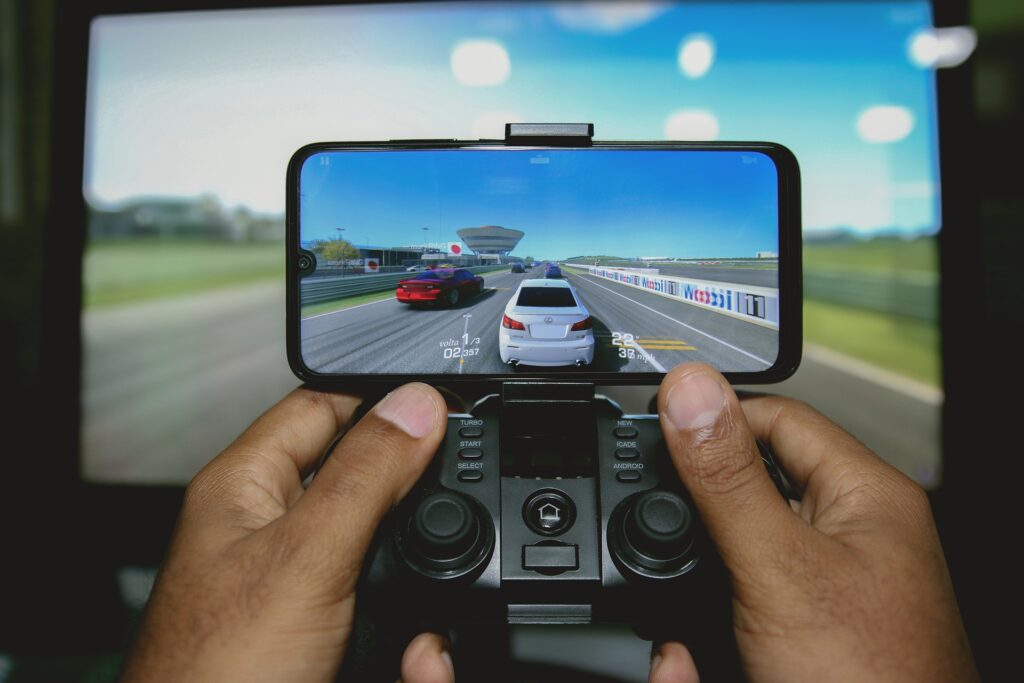What Are The Ethics Of Video Game Design?
In the world of video games, where immersive worlds and captivating stories await, have you ever stopped to think about the ethical implications of game design? From virtual violence to in-game purchases, the ethics of video game design continue to be a topic of debate and scrutiny. With the power to shape user experiences and influence behaviors, game developers hold a responsibility to navigate a complex landscape, balancing entertainment and ethical considerations. So exactly what are the ethics of video game design? Let’s explore the intriguing world of video game design ethics and the ethical dilemmas faced by designers.
What Are The Ethics of Video Game Design: Representation
Diversity and Inclusivity
In recent years, there has been an increasing demand for diversity and inclusivity in video game design. Players are looking for games that accurately represent the various individuals who make up our world. This includes different races, genders, sexual orientations, and ethnic backgrounds. The importance of representation lies in its ability to reflect reality and provide players with relatable characters and stories. By showcasing a diverse range of characters, video games can foster a greater sense of inclusivity and provide a platform for underrepresented voices.
Gender and Sexual Orientation Representation
Video games have made great strides in representing a wide range of gender identities and sexual orientations. Gone are the days when video game protagonists were predominantly male and heterosexual. Today, we see games that feature strong female leads, LGBTQ+ characters, and narratives that explore diverse relationships. The inclusion of these identities not only reflects the real world but also helps to normalize and destigmatize them. By allowing players to play as characters who share their own gender or sexual orientation, video games can create an empowering and validating experience for individuals who may feel marginalized in other forms of media.
Racial and Ethnic Representation
Racial and ethnic representation in video games is another important aspect of diversity. It is crucial for the gaming industry to actively work towards breaking stereotypes and providing authentic depictions of various cultures and ethnicities. This involves hiring diverse teams of creators and consultants who can provide valuable insights and ensure accurate representation. By incorporating diverse characters and storylines, video games can promote cultural understanding and appreciation. This, in turn, contributes to a more inclusive gaming community.
What Are the Ethics of Video Game Design: Violence and Graphic Content
Effects on Players
One of the long-standing debates surrounding video games is the impact of violence and graphic content on players, particularly on younger individuals. While research has shown mixed results, it is important to acknowledge that exposure to excessive violence can desensitize players and potentially lead to aggressive behavior. It is crucial for game developers to strike a balance between engaging gameplay and responsible content creation. By taking into account the potential effects on players, game designers can ensure that their games provide an enjoyable experience without crossing ethical boundaries.
Age Restrictions and Ratings
To address concerns about violence and graphic content, age restrictions and rating systems have been established. These systems serve as guidelines to inform parents and guardians about the appropriateness of certain games for different age groups. By clearly labeling games with age ratings, developers can help ensure that players are not exposed to content that may be harmful or inappropriate for their age. It is important for both game developers and players to respect these age restrictions and make informed choices when engaging with video games.
Realistic vs. Gratuitous Violence
Another aspect to consider when discussing violence in video games is the distinction between realistic violence and gratuitous violence. Realistic violence, when used within the context of the game’s narrative, can contribute to the overall immersive experience. However, gratuitous violence, which serves no purpose other than to shock or entertain, raises ethical concerns. Game developers should prioritize the narrative and gameplay elements rather than relying on excessive violence for shock value. This ensures that players are engaged by meaningful content rather than being subjected to unnecessary gore.

What Are the Ethics of Video Game Design: Microtransactions and Loot Boxes
Gambling and Addiction Concerns
Microtransactions and loot boxes have become a controversial topic within the gaming community. Critics argue that these features can create a gambling-like experience, especially when players spend real money to purchase virtual items with uncertain outcomes. Concerns have been raised about the potential for addiction, particularly among vulnerable individuals, such as minors. Game developers should be transparent about the randomness and odds associated with loot boxes to avoid exploiting players and contributing to addictive behaviors.
Transparency and Fairness
Transparency is key when it comes to microtransactions and loot boxes. Players should have a clear understanding of the contents and potential costs associated with these features before making any purchases. Additionally, it is essential for developers to ensure fairness by avoiding pay-to-win mechanics. Paying real money should not give players an unfair advantage over those who choose not to spend money or cannot afford to do so. By prioritizing fairness and transparency, game developers can build trust and maintain a healthy gaming environment.
Pay-to-Win Mechanics
Pay-to-win mechanics refer to game features that allow players to gain a significant advantage by spending real money. This creates an imbalance between players who can afford to purchase in-game items or upgrades and those who cannot. This practice can be seen as exploitative and unfair. To promote an ethical gaming experience, developers should avoid implementing pay-to-win mechanics and instead focus on creating gameplay that rewards skill and dedication. This ensures that players are on an equal playing field, regardless of their financial capacity.
What Are the Ethics of Video Game Design: Exploitation and Crunch Culture
Long Working Hours
One of the ethical concerns within the video game industry is the prevalence of long working hours, often referred to as “crunch culture.” Game developers often face intense pressure to meet deadlines and deliver high-quality games, which can result in developers working excessively long hours, sometimes to the point of burnout. It is essential for game studios to prioritize work-life balance and ensure that their employees are not subjected to exploitative working conditions. By fostering a healthy and sustainable work environment, game developers can create ethical and enjoyable gaming experiences.
Job Insecurity and Poor Working Conditions
Job insecurity and poor working conditions are also prevalent issues within the video game industry. Contract-based employment, layoffs, and lack of job stability can negatively impact the mental and financial well-being of game developers. It is crucial for game studios to provide fair employment practices, including long-term contracts, job security, and supportive work environments. By valuing and investing in their employees, game developers can foster a sense of trust and loyalty, ultimately leading to better game quality.
Impact on Game Quality
Exploitation and crunch culture can have a direct impact on the quality of video games. When developers are subjected to overwork and stressful conditions, it hinders their ability to produce their best work. This can lead to rushed and unfinished games, resulting in a dissatisfying experience for players. By ensuring fair working conditions and supporting their employees, game developers can maintain high standards of quality and create games that are both ethically and artistically impactful.

User Privacy and Data Protection
Data Collection Practices
With the increasing integration of online features in video games, concerns about data collection practices have arisen. Game developers must be transparent about the types of data they collect from players and how it is used. Collecting and storing personal information should be done responsibly and in compliance with privacy laws. By prioritizing data protection and being transparent about data collection practices, game developers can build trust with their players and protect their privacy rights.
Privacy Policies and Consent
Privacy policies play a crucial role in protecting user privacy and ensuring that players understand how their data is being used. Game developers should clearly communicate their privacy policies and obtain informed consent from players before collecting any personal information. It is important for players to have control over their data and be able to make informed decisions about sharing their information. By respecting user privacy and obtaining consent, game developers can establish a strong foundation of trust with their players.
Security Breaches and Player Protection
Security breaches have become a significant concern in the gaming industry, with hacker attacks targeting player data and personal information. Game developers must implement robust security measures to safeguard player information and protect against unauthorized access. In the event of a security breach, prompt disclosure and proactive steps to mitigate the impact on players are crucial. By prioritizing player protection and investing in robust security systems, game developers can ensure that their players’ information is secure.
Online Harassment and Toxic Communities
Moderation and Enforcement
Online harassment and toxic communities remain major challenges within the gaming community. Game developers have a responsibility to implement effective moderation systems and enforce strict codes of conduct to combat harassment and toxicity. This may involve implementing reporting tools, employing community managers, and taking swift action against those who violate the rules. By fostering a safe and inclusive gaming environment, developers can empower players to enjoy games without fear of harassment or discrimination.
Inclusive Gaming Spaces
Creating inclusive gaming spaces is crucial for combating online harassment and toxicity. Game developers can encourage inclusivity by actively promoting diversity in their games and community events. They can also provide resources and educational materials to help players understand the importance of respect and empathy. By fostering a sense of belonging and ensuring that everyone feels welcome, game developers can work towards eradicating toxic behaviors and fostering a positive gaming culture.
Psychological Impact on Players
Online harassment and toxic communities can have a severe psychological impact on players. Being subjected to constant harassment, discrimination, or bullying can lead to feelings of anxiety, depression, and even trauma. Game developers must recognize the potential harm that toxic communities can cause and take steps to prevent and address these issues. By prioritizing player well-being and promoting a healthy gaming environment, developers can contribute to the mental and emotional well-being of their players.

Game Accessibility
Physical Disabilities
Game accessibility refers to the ability of all individuals, regardless of their physical or cognitive abilities, to engage with and enjoy video games. It is essential for game developers to consider the needs of players with physical disabilities and provide features that accommodate their unique requirements. This may include customizable controls, options for different input devices, and the availability of subtitles or closed captions. By prioritizing accessibility, game developers can ensure that their games are inclusive and can be enjoyed by a wide range of players.
Cognitive Disabilities
Cognitive disabilities should also be taken into account when designing video games. Game developers can implement features such as clear and simple instructions, customizable difficulty levels, and visual aids to support players with cognitive disabilities. By creating games that are accessible to individuals with different cognitive abilities, developers can provide an inclusive gaming experience that promotes engagement and enjoyment for all players.
Visual and Hearing Impairments
Visual and hearing impairments present unique challenges for players. Game developers can address these challenges by providing options for different visual styles, colorblind modes, and subtitles or closed captions. Additionally, incorporating audio cues and visual indicators can help players with hearing impairments fully experience and enjoy the game. By catering to the specific needs of individuals with visual and hearing impairments, developers can ensure that their games are accessible and inclusive for all players.
What Are the Ethics of Video Game Design: Cultural Appropriation
Misrepresentation of Cultures
Cultural appropriation within video games refers to the misuse or misrepresentation of cultures without proper understanding or respect. It is crucial for game developers to research and respectfully depict cultures they seek to include in their games. This involves involving individuals from those cultures in the development process and seeking their input and guidance. By avoiding cultural misrepresentation, game developers can create games that celebrate diversity and foster cross-cultural understanding.
Stereotyping and Offensive Content
Stereotypes and offensive content perpetuate harmful narratives and lead to the marginalization and discrimination of certain cultures or ethnicities. Game developers must be conscious of the potential harm that stereotypes and offensive content can cause and actively work to avoid perpetuating them. By creating nuanced and authentic portrayals of different cultures, developers can contribute to a more inclusive and respectful gaming landscape.
Collaborative Decision-Making
To address concerns of cultural appropriation, game developers should consider adopting a collaborative decision-making approach. This involves actively seeking input from individuals who belong to the culture being depicted or hiring consultants who have expertise in that culture. By including diverse perspectives in the development process, game developers can create games that are respectful, accurate, and representative of the cultures they aim to portray.

Intellectual Property and Copyright
Plagiarism and Infringement
Respecting intellectual property and copyright is essential in the video game industry. Game developers must ensure that they are not plagiarizing or infringing upon the work of others. This includes obtaining appropriate licenses for music, artwork, or other copyrighted materials used in their games. By respecting intellectual property rights, game developers can foster a sense of fairness and integrity within the industry.
Fan-made Mods and Creations
Fan-made mods and creations are a common aspect of the gaming community. Game developers should support and encourage these creative contributions while also respecting intellectual property rights. This can be achieved by establishing clear guidelines and policies regarding the use of copyrighted material in mods and creations. By fostering a collaborative relationship with the community, game developers can promote creativity while maintaining respect for intellectual property.
Fair Use and Parody
Fair use and parody play important roles in the video game industry. Game developers should be aware of the legal principles that allow for the use of copyrighted material under certain circumstances, such as for educational or transformative purposes. By understanding and respecting fair use and parody, game developers can create games that engage with copyrighted material responsibly and legally, contributing to a thriving and innovative gaming community.
What Are the Ethics of Video Game Design: Environmental Impact
Energy Consumption and Carbon Footprint
The video game industry, like many other industries, has an environmental impact. One aspect of this impact is energy consumption. Game developers should strive to reduce the energy usage of their games by optimizing performance and utilizing energy-efficient technologies. Additionally, considering the carbon footprint of game production and distribution is crucial. Implementing sustainable practices, such as using renewable energy sources and minimizing packaging waste, can contribute to reducing the environmental impact of the industry.
E-waste and Sustainable Practices
E-waste is a significant concern in the gaming industry due to the frequent turnover of gaming consoles, accessories, and other electronic devices. Game developers should prioritize sustainable practices throughout the life cycle of their products, from design to disposal. This includes using eco-friendly materials, promoting recycling and proper disposal of electronic devices, and supporting initiatives that aim to reduce e-waste. By adopting sustainable practices, game developers can help reduce the environmental impact of their products.
Ethical Sourcing of Materials
The sourcing of materials for video game production should be done ethically and responsibly. Game developers should be mindful of the environmental and social impacts associated with the extraction and production of materials used in their games. This involves considering factors such as responsible mining practices, fair trade, and ensuring that supply chains are free from exploitative labor practices. By prioritizing ethical sourcing, game developers can contribute to a more sustainable and socially conscious gaming industry.
In conclusion, the ethics of video game design encompass a wide range of considerations, from representation and inclusivity to violence and graphic content, and from microtransactions to environmental impact. Game developers have a responsibility to prioritize diversity, fairness, player well-being, and environmental sustainability. By adopting ethical practices, game developers can create games that not only provide enjoyable experiences for players but also promote inclusivity, social responsibility, and cultural understanding. Ultimately, the ethical choices made in video game design have the power to shape the industry and the experiences of players for years to come.




